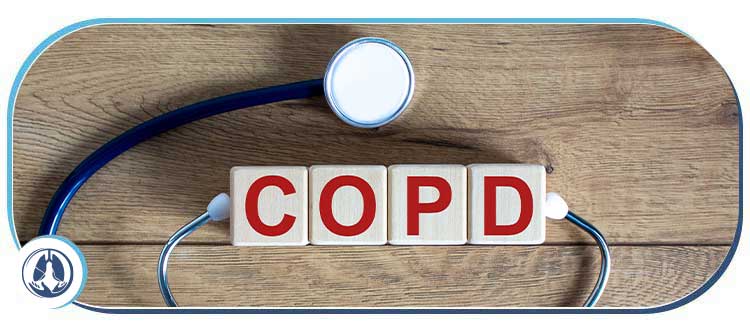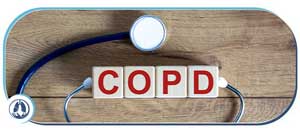COPD Treatment Specialist in Hallandale Beach, FL
Chronic obstructive pulmonary disease (COPD), which includes chronic bronchitis and emphysema, is a long-term lung disease that makes it hard to breathe. Our board-certified pulmonologist, Dr. Luis J. Mesa, MD, can help with chronic obstructive pulmonary disease COPD, contact us for more information or schedule an appointment online. We are conveniently located at 1250 E Hallandale Beach Blvd Suite 205 A, Hallandale Beach, FL 33009.


Table of Contents:
What is chronic obstructive pulmonary disease?
What are the early warning signs of COPD?
What are the 4 stages of COPD?
What will a pulmonologist do for COPD?
Chronic obstructive pulmonary disease (COPD) is a chronic and progressive condition, which means that there is no cure, and it often gets worse over time. With that being said, there are effective treatment options that can help you manage and reduce symptoms of COPD in meaningful ways. As such, if you are experiencing signs of COPD, you should seek medical attention for testing and treatment as soon as you can to prevent the condition from getting worse. We would be happy to provide you with testing or treatment at Dr. Luis J. Mesa, MD, in Hallandale Beach, FL.
Chronic obstructive pulmonary disease is an umbrella term for two different pulmonary conditions that cause difficulties with breathing due to obstructed airflow from swollen or partly blocked lungs. The two conditions COPD comprises are emphysema, which involves damage to the lung’s air sacs, and chronic bronchitis, which involves long-term inflammation of the airways.
With COPD, the following occurs within the lungs:
• Airway walls thicken and become inflamed
• Airways and air sacs lose elasticity
• Airways produce more mucus than usual
• Walls between air sacs deteriorate
The most common causes of COPD include cigarette smoke and long-term exposure to certain lung irritants, such as air pollution, chemical fumes, or dust. In rare cases, COPD may be caused by a genetic deficiency of a protein known as alpha-1-antitrypsin, causing the lungs to deteriorate.
Many individuals experience only mild symptoms or none at all in the earliest stages of COPD. As a result, many of those same individuals will not realize that they have COPD. With that in mind, it is important to know some early warning signs of COPD to pay attention to, which include the following:
• Chest tightness
• Chronic cough, either dry or productive
• Fatigue
• Frequent illnesses or infections
• Increased mucus production
• Insomnia or difficulty sleeping
• Shortness of breath
The four stages of COPD are based on the GOLD system, which stands for the Global Initiative for Chronic Obstructive Lung Disease, and are classified as mild, moderate, severe, and very severe. The GOLD stages are determined through spirometry readings, the severity of your current symptoms, the existence of other medical conditions, and the chances that your condition will get worse.
With mild or stage I COPD, you may or may not experience any symptoms. However, if you do experience symptoms at this stage, they could include a nagging cough, with or without mucus production, as well as occasional shortness of breath, especially during physical activity.
Moderate or stage II COPD typically involves symptoms that can no longer be ignored, as they will likely impact your daily life at this point. Since mild COPD often goes unnoticed, people often first go to the doctor and are diagnosed with COPD at stage II. Some common symptoms of stage II COPD include:
• Increased breathlessness
• Constant cough that is often worse when you wake up
• Increased fatigue
• Difficulty sleeping
• Wheezing
• Forgetfulness
• Confusion
• Slurred speech
With severe or stage III COPD, the symptoms you experience typically begin to significantly impact how you can live your life, as your strength and energy can feel completely drained. At the same time, treatment can help minimize the impact of stage III COPD in meaningful ways. Some common symptoms of stage III COPD include:
• Frequent flare-ups
• Increased shortness of breath, infections, and fatigue
• Chest tightness
• Rapid breathing
• Wheezing
• Trouble taking a deep breath
• Swelling in ankles, feet, and legs
Stage IV COPD is classified as very severe or end-stage COPD. During this stage, it is common to experience any of the following:
• More frequent and intense flare-ups
• Irregular heartbeat
• Delirium
• Fast resting heart rate
• Weight loss
• High blood pressure
• Crackling sound when you begin to inhale
• Out of breath for extended periods
• Barrel chest
• Constant wheezing.
A pulmonologist can help with COPD in numerous ways, including diagnostic testing and various lung therapies and other treatment options. With that in mind, the treatment options for COPD vary according to the severity of the patient’s condition. Some lung therapies and treatment options for COPD include the following:
• Antibiotics and steroids for flare-ups
• Pulmonary rehabilitation, involving exercise and other lifestyle changes
• Short-acting and long-acting bronchodilators
• Supplemental oxygen therapy
• Surgery, in rare and severe cases, including bullectomy, lung volume reduction surgery, or a lung transplant
For more information about COPD or how our board-certified pulmonologist can help with COPD at Dr. Luis J. Mesa, MD, please feel free to give us a call! You can also schedule an appointment on our website. The clinic of Dr. Luis J. Mesa, MD, is located at 1250 E Hallandale Beach Blvd Suite 205 A, Hallandale Beach, FL 33009. We serve patients from Hallandale Beach FL, Aventura FL, Hollywood FL, Golden Glades FL, Miramar FL, Hialeah FL, Fort Lauderdale FL, and BEYOND.

Additional Services You May Need
▸ General Pulmonary Medicine + Pleural Disease
▸ Sleep Medicine
▸ Internal Medicine
▸ Critical Care Medicine
▸ Telemedicine
▸ Pulmonologist
▸ Sleep Disorder Treatment
▸ Obstructive Sleep Apnea (OSA) Treatment
▸ Asthma Specialist






